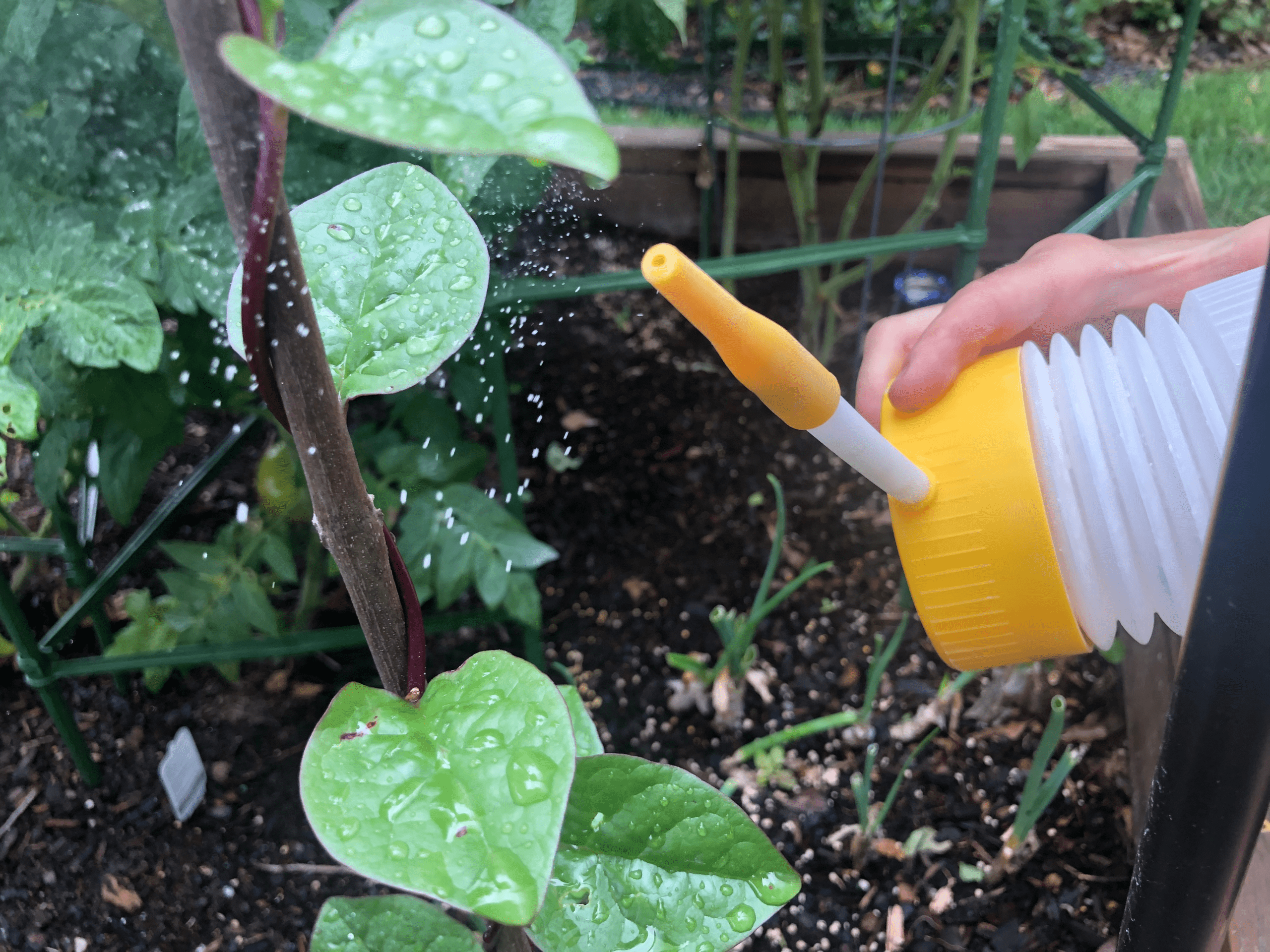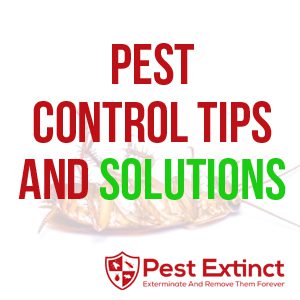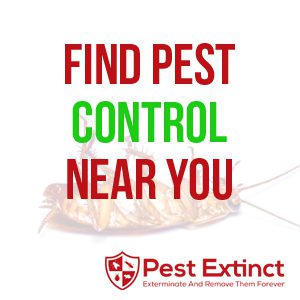
Top Tips for Safe and Eco-Friendly Backyard Pest Control
Your backyard should be a haven for relaxation, outdoor gatherings, and family activities. However, an influx of pests such as mosquitoes, ants, ticks, and other unwanted invaders can quickly turn your outdoor oasis into a battleground. Traditional pest control methods often rely on chemical pesticides, which, while effective, can have negative impacts on the environment, beneficial insects, and even your health.
Fortunately, there are plenty of eco-friendly and safe pest control methods that can help you reclaim your backyard without harming the environment. In this blog, we’ll cover the top tips for safe and eco-friendly backyard pest control, from natural deterrents to responsible landscaping. We’ll also explain when it’s best to hire a professional pest control service to ensure your backyard is properly protected.
Why Choose Eco-Friendly Pest Control?
Before diving into specific tips, let’s look at why eco-friendly pest control methods are the best choice for your backyard.
1. Protecting Beneficial Insects
Not all insects are harmful. In fact, many species play crucial roles in pollination, soil health, and controlling the populations of more destructive pests. Bees, ladybugs, spiders, and certain types of wasps are natural pest controllers that help maintain a balanced ecosystem. Using harsh chemicals to eliminate pests often wipes out these beneficial insects, which can disrupt the natural balance in your garden or backyard.
2. Safer for Pets and Children
If you have children or pets, it’s important to be cautious about the types of pest control solutions you use in your backyard. Chemical pesticides can be toxic if ingested or inhaled and may leave harmful residues on grass, plants, and outdoor surfaces. Eco-friendly methods, on the other hand, prioritize the safety of your family and pets while keeping pests at bay.
3. Environmentally Sustainable
Chemical pesticides can leach into the soil and water systems, causing harm to aquatic life, birds, and other wildlife. Eco-friendly pest control methods minimize this environmental impact by using natural ingredients and practices that are sustainable in the long run. They help preserve the health of your local ecosystem while reducing your carbon footprint.
Now that we’ve established the benefits of eco-friendly pest control, let’s explore practical tips to keep your backyard pest-free without resorting to harmful chemicals.

Use Natural Pest Deterrents
Natural deterrents can be highly effective in keeping unwanted pests away from your backyard without causing harm to the environment. Here are some common natural pest control methods:
Essential Oils
Essential oils are powerful natural repellents for many pests. Oils such as citronella, lavender, peppermint, and eucalyptus are effective at repelling mosquitoes, flies, and ants. These oils can be mixed with water and sprayed around your backyard, on outdoor furniture, or directly on plants (in moderation) to create a pest-free zone.
- Peppermint oil: Works well against ants, spiders, and mosquitoes.
- Lavender oil: Deters fleas, flies, and mosquitoes.
- Citronella oil: A well-known repellent for mosquitoes.
Garlic Spray
Garlic is another effective natural pest deterrent, particularly against insects such as aphids, mosquitoes, and caterpillars. You can make a simple garlic spray by blending garlic cloves with water, straining the mixture, and then spraying it on plants or in areas where pests tend to gather.
- How to make garlic spray: Blend two to three cloves of garlic with one quart of water. Strain the mixture and use it as a spray on plants or garden areas.
Vinegar
Vinegar is a great multi-purpose household item that can be used for cleaning, but it’s also an effective natural pest deterrent. Ants, for example, are particularly repelled by vinegar. You can mix equal parts water and vinegar to create a spray that targets ant trails, areas around your house, and in cracks or crevices where pests enter.
- Vinegar spray: Mix equal parts white vinegar and water and spray around problem areas.
Diatomaceous Earth (DE)
Diatomaceous earth is a naturally occurring powder made from fossilized remains of tiny aquatic organisms. It works by damaging the exoskeletons of insects, ultimately killing them through dehydration. DE is effective against a wide range of pests, including ants, slugs, and beetles. Since it’s non-toxic to humans and pets, DE is a popular choice for eco-friendly pest control.
- How to use DE: Sprinkle a light layer of food-grade diatomaceous earth around the perimeter of your yard, in garden beds, and near ant mounds.

Encourage Natural Predators
One of the most eco-friendly ways to control backyard pests is by encouraging the presence of natural predators that keep pest populations in check. Here are some ways you can invite helpful predators into your backyard:
Attract Beneficial Insects
Beneficial insects such as ladybugs, praying mantises, and lacewings are natural predators of common pests like aphids, mites, and whiteflies. You can attract these insects by planting certain flowers and herbs in your garden, such as:
- Marigolds: Attract beneficial insects like ladybugs while repelling pests like aphids and mosquitoes.
- Dill and fennel: Both herbs attract parasitic wasps and ladybugs, which help control harmful pests.
- Sunflowers: These bright flowers attract pollinators and beneficial insects.
You can also purchase live ladybugs or praying mantises and release them into your garden to help control pest populations naturally.
Create Habitats for Birds
Birds are excellent natural pest controllers, as they feed on a variety of insects, including mosquitoes, flies, and beetles. You can encourage birds to visit your backyard by installing bird feeders, birdbaths, and birdhouses. Birds such as wrens, swallows, and bluebirds are particularly effective at keeping pest populations in check.
Invite Bats to Your Backyard
Bats are one of nature’s best mosquito hunters, with some species capable of eating up to 1,000 mosquitoes in a single hour. By installing a bat house in your yard, you can provide shelter for these beneficial creatures and reduce the mosquito population around your home.

Maintain a Healthy Lawn and Garden
A well-maintained lawn and garden are essential for minimizing the presence of pests in your backyard. Pests are more likely to thrive in overgrown or unkempt environments, so regular upkeep is key to keeping them at bay.
Remove Standing Water
Standing water is a breeding ground for mosquitoes, so it’s important to regularly check for and eliminate any sources of stagnant water in your backyard. This includes:
- Emptying out plant saucers, buckets, and containers that collect rainwater.
- Cleaning birdbaths and fountains regularly to ensure water doesn’t become stagnant.
- Ensuring that gutters and drains are clear of debris and properly directing water away from your home.
Mow the Lawn Regularly
Overgrown grass provides shelter for pests such as ticks, fleas, and rodents. Mowing your lawn regularly and trimming overgrown vegetation reduces the number of places pests can hide and reproduce. Additionally, keeping your lawn short allows the sun to reach the soil, which can discourage certain pests from settling.
Compost Properly
Composting is an eco-friendly practice, but if not done correctly, it can attract pests such as rats, flies, and ants. To avoid this, ensure that your compost bin is securely closed and properly managed. Avoid adding meat, dairy, or oily food scraps to your compost pile, as these can attract scavenging pests.

Use Companion Planting
Companion planting is the practice of growing certain plants together to naturally deter pests or improve the health of your garden. This method has been used for centuries to enhance garden productivity and protect plants from harmful insects.
Some common companion plants for pest control include:
- Basil: Repels flies and mosquitoes when planted near tomatoes or peppers.
- Chrysanthemums: Contains pyrethrum, a natural insecticide that repels ticks, fleas, and spider mites.
- Mint: Repels ants and flies, but should be planted in containers to prevent it from overtaking your garden.
By strategically planting certain crops together, you can create a natural pest barrier and reduce the need for chemical pesticides.
Hire a Professional Pest Control Service
While many eco-friendly pest control methods can be effectively managed on your own, some pest infestations require the expertise of a professional pest control service. Professionals are trained to handle more severe infestations, use targeted treatments, and ensure long-term protection of your property.
When to Call a Professional Pest Control Service
If you’ve tried DIY methods and are still struggling with persistent pests, it may be time to bring in a professional. Here are some scenarios where hiring a pest control service is the best option:
- Widespread infestations: If your pest problem has spread throughout your yard or home, professional intervention is often necessary to completely eliminate the issue.
- Dangerous pests: Certain pests, such as wasps, ticks, and poisonous spiders, can pose a risk to your health. A professional pest control service can safely remove these pests without putting your family at risk.
- Long-term prevention: Professionals can help develop a customized plan to keep your backyard pest-free in the long run. This includes identifying potential entry points, recommending landscaping changes, and applying eco-friendly treatments that provide ongoing protection.
Eco-Friendly Pest Control Services
Many pest control companies now offer eco-friendly pest management solutions that minimize environmental impact while effectively controlling pest populations. These services often use natural or low-toxicity products and focus on integrated pest management (IPM) strategies, which combine biological, physical, and chemical control methods to minimize harm to non-target species.
When hiring a pest control service, ask about their eco-friendly options and ensure they use products that are safe for pets, children, and the environment.

Regular Monitoring and Maintenance
Once you’ve implemented eco-friendly pest control measures, regular monitoring is essential to ensure that pests don’t return. Keep an eye on pest activity in your garden and address issues as soon as they arise. Seasonal changes can bring new pests to your backyard, so adjusting your pest control strategies throughout the year will help maintain a pest-free environment.
Eco-friendly pest control methods offer a safe and effective way to keep your backyard free of pests while protecting the environment, your family, and beneficial wildlife. From using natural deterrents and encouraging helpful predators to maintaining a healthy lawn and hiring professional services, there are plenty of ways to create a balanced ecosystem that discourages pests without the need for harmful chemicals.

Leave a Reply